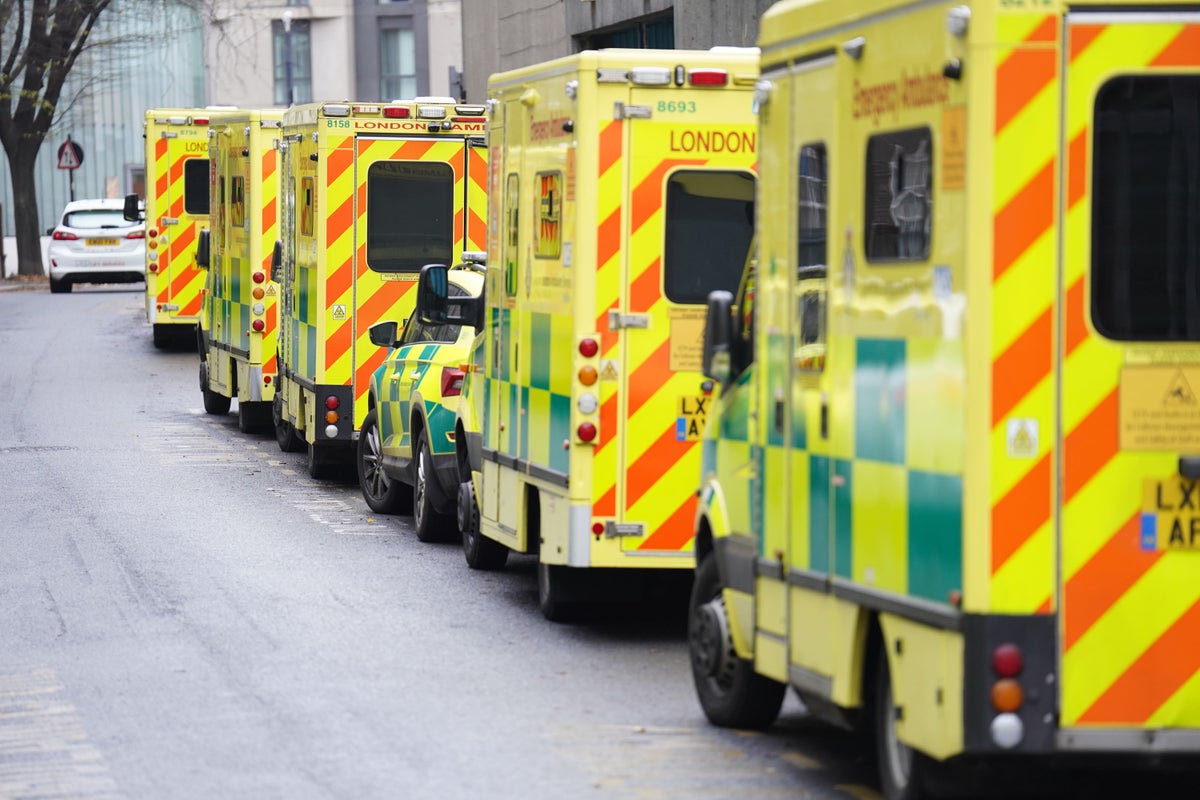
Patients in dire need of urgent medical help are facing a postcode lottery of care, according to a damning new report into emergency care services in the NHS in England.
Performance in key services has fallen “far below the standard the NHS says patients should expect and receive”, MPs have warned.
The Public Accounts Committee (PAC) called for the NHS and the Department of Health and Social Care (DHSC) to take action to improve care for patients.
Dame Meg Hillier MP, chair of the committee, said: “Patients suffering long waits and hard-pressed staff working in a system which is not delivering deserve better. The PAC’s role is to analyse the underlying numbers and attempt to provide a ‘get well soon’ plan for the NHS.
“The government and health system need to be alert to the serious doubts our report lays out around the workforce crisis, both the approach to tackling it now and the additional costs funding it in the future.”
Last year, The Independent exposed the growing crisis in A&E which showed 50,000 people a week waited for 12 hours on trollies in December last year. of 12-hour trolley wait
The PAC’s report comes after Dr Adrian Boyle, president of the Royal College of Emergency Medicine, warned that the government and NHS’ plans for winter were not good enough and could lead to thousands more deaths.
The committee’s report, based on 2021-22 data, also draws on the service’s flagship long-term workforce plan, saying the plans are “unfunded and uncosted” and could lead to unsustainable financial pressures.
And MPs said they were “unconvinced” by the health service’s approach to plugging staffing shortfalls.
Saffron Cordery, deputy chief executive of NHS Providers, which represents hospitals in England said: “Last winter, one of the toughest that the NHS has ever seen, saw huge demand across the whole health and care system. This winter threatens to be even tougher.
“Trusts are working flat out in the face of relentless pressure compounded by severe workforce shortages and insufficient capacity - but still many patients are having to wait too long for care.”
Recent NHS data shows this September was the busiest on record for A&E with attendances up by eight per cent compared to 2022.
“The NHS needs more staff, beds and equipment and significant investment in social care. And with 125,000 unfilled jobs across the NHS today, MPs are right to highlight that we still don’t know exactly how all of the ambitions in the long-term workforce plan, published in June, will be funded, Ms Cordery said.
The committee’s MPs warned that patient access to quality urgent and emergency care “depends too much on where they live”.
People in some parts of the country have to wait, on average, more than three minutes longer for an ambulance to arrive when they are facing a life-threatening emergency, the committee said.
Ambulances queue to hand over patients at the Royal London Hospital (— (PA Archive)
It highlighted that in 2021/22, average ambulance response times for the most serious incidents – including cardiac arrests – varied from six minutes 51 seconds for the London Ambulance Service to 10 minutes 20 seconds for the South Western Ambulance Service.
Ambulances aim to respond to the most serious life-threatening injuries and illnesses in an average time of seven minutes.
The MPs said: “Not enough (is) being done to address the systemic issues with discharges that lie within the gift of the NHS and its hospitals, and which cannot be blamed on external factors.”
They added: “The NHS has not met targets for ambulance handovers since November 2017 and for A&E waits since July 2015, with wider declines in performance across the board.
PAC chair MP Meg Hillier— (PA Archive)
“Against this background, we asked how effective the (health) department has been in holding NHS England to account for the declining performance.”
The MPs said the NHS “has more money and staff than ever before but has made poor use of it to improve access for patients when they are in urgent need”.
The report added that NHS England’s existing plans “lack ambition given the scale of the issue at hand”.
Meanwhile, they said that the NHS’s long-term workforce plan includes only a commitment of an additional £2.4 billion to cover training costs for the first five years of the 15-year plan.
Responding to the document, Professor Julian Redhead, NHS England’s national clinical director for urgent and emergency care, said: “While this report includes data which is more than two years old and coincided with a once-in-a-generation pandemic, it is right to note the NHS has been under increasing pressure with staff experiencing record A&E attendances, hospitals fuller than at any point in their history and with thousands of beds taken up each day, in part, due to pressures in social care.”
He said as part of the NHS winter plan it aims to have 800 new ambulances in place, 10,000 virtual wards and 5,000 additional hospital beds.
Professor Redhead added the plan has been delivered while the NHS has also promised to make £12 billion in savings by 2024-25.
The Department of Health and Social Care has been approached for comment.







